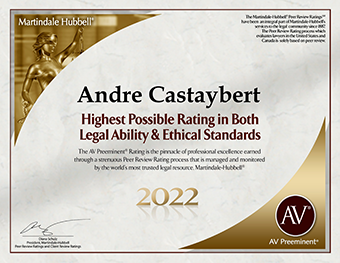May 23, 2023
The goal of mediation, unlike litigation, is voluntary settlement between the parties. There is no winning or losing, the goal is a compromise where both parties can walk away feeling satisfied. Because it is up to the parties whether they will or will not settle, it is imperative that you arrive prepared for mediation with a true understanding of your goals and realistic concessions you are willing to make to avoid litigation. By taking the following considerations into account before you begin mediation, you will be well prepared to advocate your position.
- What are your goals?
By identifying your key interests, you and your attorney can strategize so that the settlement addresses all of your goals. This step allows you to prioritize your interests while also considering broader areas of importance. Is this a business relationship you hope to preserve in the future? Is confidentiality particularly important to protect you moving forward? Your attorney should help you recognize these interests in addition to what is required for a financial settlement.
- Do not shy away from making the first offer.
Studies show that parties who make the opening offer in negotiation are more pleased upon settlement than their adversaries. This is thanks to “anchoring” and the fact they define the range for the negotiation to follow.
- Estimate your success at litigation.
Your attorney should help you realistically estimate your chances for success should the dispute go to litigation. Depending on this estimate, you will have a better understanding of how you should handle mediation. Perhaps you can hold out longer for a more favorable outcome given the strength of your position, or maybe you need to identify reasonable points of compromise in favor of settlement. Also, considering the costs of litigating the dispute should factor in as potential liability when determining your mediation strategy.
- Prepare to speak at the plenary session.
While it can seem easier to leave the talking to the attorneys, it can be very powerful, and beneficial to your position, if you address the opposing party directly. Authentic expressions of emotion can assist your counterparty in grasping your perspective and even shift their position closer to yours.
- How will you fund the settlement?
Arrange for funding in advance and come prepared with realistic settlement parameters. Ensure you have proof of funding and the authority to agree to settlement terms.
- Back up your position with an actual explanation.
Rather than make bare demands, come ready to assist your counterparty in understanding why you are asking for what you want. Helping them understand your why will increase your chances of success that your demand will be accepted.
- Remember the role of the mediator.
The mediator is unbiased and is there to help you reach a resolution, not hand down a verdict. Use the mediator to your advantage and remember all communications with them remain confidential and are not disclosed to your counterparty. The mediator should serve as a sounding board for your strategy for reaching a settlement and can help you get there faster.
With adequate preparation, you will arrive at mediation in the best possible position to settle favorably and avoid litigation.
To read how Castaybert PLLC can assist you with mediation, click here.







